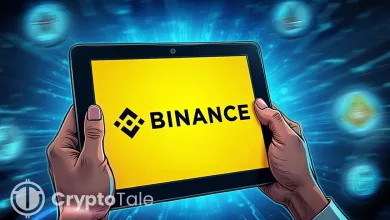El Salvador Adds More Bitcoin After IMF Loan Review Approval

- El Salvador buys more Bitcoin shortly after securing $1.4B in IMF loan approval.
- IMF urges Bitcoin freeze and Chivo exit by July, but new BTC purchases continue.
- Bitcoin Office bypasses the IMF terms using a legal distinction within the fiscal sector.
El Salvador and the International Monetary Fund (IMF) have once again clashed over the country’s Bitcoin strategy. On May 27, IMF staff reached a staff-level agreement with the Salvadoran authorities on the first review of the 40-month Extended Fund Facility (EFF) as part of a $1.4 billion loan program. Shortly after that, El Salvador’s Bitcoin Office announced the purchase of eight additional Bitcoins.
The IMF acknowledged that most program targets had been met. Officials cited improvements in macroeconomic stability, inflation reduction, and fiscal reforms. The country’s economy continues to grow despite global challenges, supported by strong remittances and renewed investor confidence.
However, the IMF again warned that the Bitcoin holdings in government wallets should not increase. It emphasized that the total amount of Bitcoin must remain unchanged as part of ongoing program commitments. Additionally, the IMF confirmed a deadline of the end of July for ending public sector involvement in the Chivo wallet. The wallet is El Salvador’s state-managed crypto platform introduced when the country adopted Bitcoin as legal tender in 2021.
Despite these conditions, El Salvador has continued acquiring Bitcoin through its Bitcoin Office. The government now holds nearly 6,200 BTC, valued at approximately $674 million, according to Arkham Intelligence.
President Nayib Bukele’s administration maintains the stance that these purchases do not breach IMF conditions. The Bitcoin Office operates separately from the government’s fiscal accounts. Therefore, it is not bound by the same rules that govern public finance under the IMF program. This legal distinction allows daily crypto purchases to continue without affecting program performance benchmarks. The IMF, however, continues to monitor crypto activities closely.
Related: Bitcoin’s Rally Ends as Market Reacts to Trade Tensions
Meanwhile, IMF staff praised the Salvadoran government’s performance under the EFF agreement. The review noted significant strides in transparency, governance, and economic resilience. Officials agreed to keep implementing the fiscal consolidation plan and structural reforms.
Future measures include reducing the wage bill and controlling current spending. The new Fiscal Sustainability Law will support these changes. Plans to reform the civil service and pension systems are underway.
External reserves are also being strengthened through deposits at the Central Bank. The government will raise bank liquidity requirements and improve financial oversight. The IMF reiterated that the continued implementation of agreed policies is crucial. These steps aim to entrench stability and enable stronger, long-term growth.




